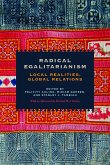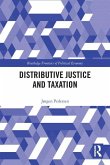In this volume, leading scholars in anthropology, religion, and area studies engage global and local perspectives dialectically to develop a historically grounded, ethnographically driven social science. The book's chapters, drawing on research in East and Southeast Asia, Africa, Europe, and the Americas, are also in conversation with the extensive work of editor and contributor Stanley J. Tambiah: They all investigate some aspect of what Tambiah has called "multiple orientations to the world." The implicit focus throughout is on human cultural differences and the historically constituted nature of the political potentialities (both positive and negative) that stem from these. As a whole, then, the volume promotes an approach to scholarship that actively avoids privileging any one conceptual framework or cultural form at the expense of recognizing another--a style of inquiry that the editors call "radical egalitarianism." Together, these scholars encourage a comparative examination of contemporary societies, provide insights into the historical development of social scientific and sociopolitical categories, and raise vital questions about the possibilities for achieving equality and justice in the presence of competing realities in the global world today. Michael M.J. Fischer's Afterword provides a brilliant exegesis of Tambiah's multifaceted oeuvre, outlining the primary themes that inform his scholarship and, by extension, all the chapters in this book.
Hinweis: Dieser Artikel kann nur an eine deutsche Lieferadresse ausgeliefert werden.
Hinweis: Dieser Artikel kann nur an eine deutsche Lieferadresse ausgeliefert werden.








